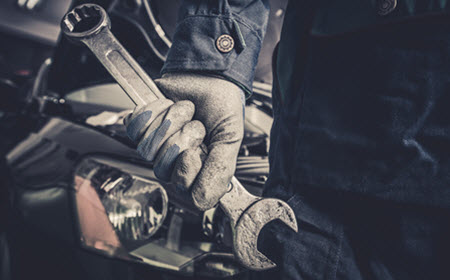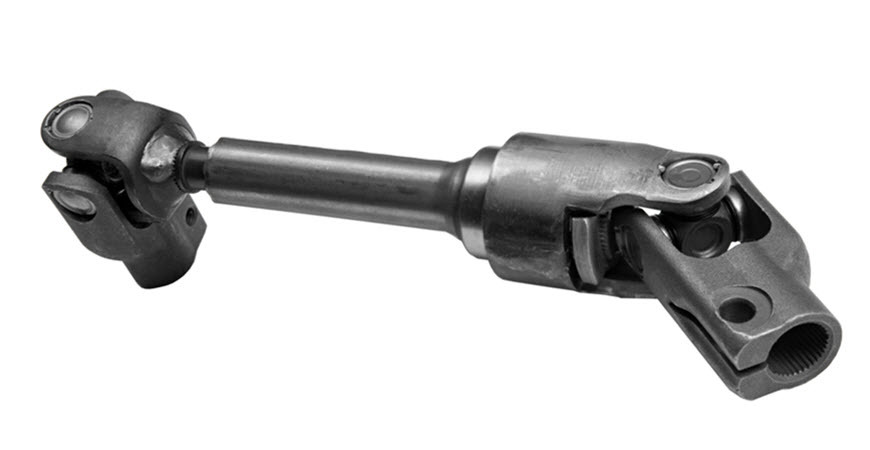Some models of Porsche are at an increased risk of developing IMS bearing failure. This issue can strike seemingly without warning and can be very expensive to repair. To avoid this, you need to know how to deal with IMS bearing failure at the first warning signs. Let’s take a closer look at the IMS bearing, learn what it does, why it fails, and what to do about it.
The IMS Bearing
The Intermediate Shaft bearing, or IMS bearing, is needed to support and secure the flywheel end of the intermediate shaft. The intermediate shaft is an essential part that is found under the hood of your Porsche. It is needed to drive the camshafts and safeguard the chains. Therefore, the IMS bearing is also essential, as it keeps the intermediate shaft in place and provides the necessary support needed to prevent damage to the shaft.
Porsche Models Likely to Experience IMS Bearing Trouble
Porsche cars manufactured between 1997 and 2008, most notable 911s, Boxters, and Caymans, are the most likely to develop IMS bearing failure. The Turbo, GT2, and GT3 of this era are largely unaffected.
The most troublesome period regarding IMS bearing issues are the bearings found in Porsche’s manufactured between 2000 and 2005. This includes the 996 variant of the 911, as well as the Boxer 986.
There is no real accurate timespan in when a driver can expect IMS failure. Some unfortunate drivers may notice IMS issues after only 20,000 miles, while for others it may be over 100,000 miles before an issue is detected. This means that it is very important to know the warning signs of IMS bearing failure instead of waiting for severe failure to occur within your vehicle. Let’s take a look at what this looks like.
Warning Signs of IMS Bearing Failure
The main warning sign of IMS bearing failure comes when changing either the engine oil or the oil filter of your Porsche. When doing this, pay attention to any debris found within the oil or filter. Plastic shards can come from the IMS bearing seal. More worryingly, pieces of metal coming from inside the bearing itself indicates failure that needs to be addressed immediately.
An oil leak that occurs at the rear of the engine may also point to IMS bearing failure, as can knocking noises emanating from the engine, but these can also be caused by other types of part failure. Still, these need to be investigated to prevent engine damage.
Worst-Case Scenario
In a worst-case scenario, IMS bearing failure can cause the camshaft to slip out of timing with the rest of the engine. This will allow the valve and piston to contact other, and catastrophic damage can result. When this happens, the only way to repair the damage is to fully strip and then rebuild the engine, which is a costly and time consuming job.
How to Deal with IMS Bearing Failure
Aside from keeping on top of scheduled servicing and looking out for plastic or metal debris in your engine oil, there are a few other ways in which you can deal with IMS failure.
You can pre-empt the problem and replace the bearing before it has the chance to fail. A Porsche manufactured between 1997 and 2005 has accessible bearings, meaning that proactive replacement is much easier. You can also choose to change out your oil and filter more often, as this will allow you to monitor whether debris is present.
Escondido German Auto Shop
When IMS bearing failure occurs, don’t try and drive your Porsche. Driving your Porsche with IMS bearing failure will allow metal debris to fly around the engine system,  causing extensive damage and a very costly rebuild expense. Instead, call for roadside assistance to tow you to our shop.
causing extensive damage and a very costly rebuild expense. Instead, call for roadside assistance to tow you to our shop.
If you’re looking for a German expert auto service shop to repair your Porsche, Audi, BMW, Mercedes-Benz, MINI, Sprinter, or Volkswagen, then look no further than our friendly team at Escondido German Auto Shop. We’re based in California and are perfectly situated for residents of Escondido, Rancho Bernardo, Valley Center, CA. So, if you’re looking for superior quality auto repairs, give our customer service team a call.

